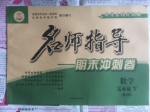题目内容
It was Thanksgiving morning. In the crowded kitchen of my small home I was busy preparing the traditional Thanksgiving turkey____the doorbell rang. I opened the front door and saw two small children in ____ clothes and thin little sandals(凉鞋), staying together at the door on the top step.
“Any old____, lady?” asked one of them.
I was ____. I wanted to say “no” until my eye____their sandals, which were wet with heavy snow.
“____and I’ll make you a cup of hot cocoa.”
They walked ____and sat down at the table. Their wet sandals left marks upon the____. I served them cocoa and bread with jam to fight____the freezing cold outside.____I went back to the kitchen and started again on my household budget for Thanksgiving Day.
The silence in the front room struck me. I looked in. The girl held the empty cup in her hands, looking at it. The boy asked in a flat voice,“Lady, are you____?”
I looked at my old sofa covers. The girl put her cup back in its saucer(托盘)____and said, “Your cups match your saucers.” Her voice was____with a need that no amount of food could supply.They left after that,____their papers against the wind.They hadn’t said“Thank you.”They didn’t need to.They had____me that I had so much for which to be grateful.Plain blue china cups and saucers were____worth five pence. But they matched.
I tasted the potatoes and the meat soup. Potatoes and brown meat soup, a roof over our heads, my man with a good steady job—these____, too.
I moved the chairs back from the fire and____the living room. The muddy(沾上泥的)____of small sandals were still wet upon my floor. Let them be for a while, I thought, just in case I should begin to____how rich I am.
1.A. before B. while C. when D. as
2.A. worn B. strange C. ordinary D. smart
3.A. clothes B. papers C. cups D. shoes
4.A. sad B. nervous C. busy D. happy
5.A. fell upon B. came at C. went through D. got into
6.A. Stand back B. Turn around C. Get out D. Come in
7.A. over B. out C. off D. on
8.A. door B. floor C. ground D. wall
9.A. about B. against C. for D. in
10.A. Thus B. But C. Then D. So
11.A. rich B. kind C. helpful D. healthy
12.A. curiously B. hopefully C. carefully D. silently
13.A. hungry B. pleasant C. deep D. cold
14.A. turning B. delivering C. pushing D. holding
15.A. reminded B. promised C. persuaded D. told
16.A. really B. even C. well D. only
17.A. matched B. worked C. mixed D. agreed
18.A. decorated B. equipped C. emptied D. cleaned
19.A. lines B. prints C. signs D. steps
20.A. realize B. doubt C. forget D. prove
1.C
2.A
3.B
4.C
5.A
6.D
7.A
8.B
9.B
10.C
11.A
12.C
13.A
14.D
15.A
16.D
17.A
18.D
19.B
20.C
【解析】
试题分析:作者在感恩节时帮助两位收废品的小孩,从他们对生活的朴实的理解中受到启迪,明白了知足者常乐、生活充实就意味着富有的道理。
1.考查连词辨析。A.在…之前;在…以前;比…更早。B.在…期间;与…同时。C.在…时候。D.像;像…一样。本题是表示我正忙着做火鸡的时候,门铃突然响起来了。所以根据上下文意思,所以选C。
2.考查形容词辨析。A.破烂的;穿旧的,用旧的。B.奇怪的;陌生的;生疏的.C.普通的;正常的。D.聪明的;漂亮的;整齐的。根据后文提到的thin little sandals
和heavy snow可知,在冬天脚上还穿的凉鞋,小孩应该是很可怜的,所对应的衣服应该也是破旧的。综合上面的选项,所以选A。
3. B.纸张。C.杯子。D.鞋子。根据49空附近,作者让小孩子们带走了一些纸,可以知道,小孩子们是在这里找她要一些旧纸张。所以选B
4.I was busy preparing the traditional Thanksgiving turkey可知,作者当时的状态应该是非常忙碌的。所以选C。
5. B.扑向;向…逼近。 C.经历;翻阅,查找。 D.从事于,致力于;被批准入学。根据上文的eyes和下文的their sandals可知,作者是想表示他的眼睛突然转向了他们鞋子,所以选A。
6.(使)转身;(使)好转;改变意见。C.出来;出版;(使)出现;作出。D.进来,进入。根据后文作者邀请小孩们喝一些热可可可以知道,这时候作者是要邀请孩子们进入他们家。所以选D。
7. 穿过;走到另一地方。B. 罢工;突然离开。C. 离开;走开。D. 继续走;(演员)上台。根据后文可以得知,作者邀请小孩进入他们家,小孩已经坐下了。所以前文要表示小孩走进来了。根据选项判断,所以选A。
8.
9. 争夺,争吵。B. 与…作斗争,与…争吵。C. 为…而战。D. 在某方面反对某人;在…作战。根据后文的the freezing cold可知,这个地方是表示和外面的寒冷进行斗争。所以选B.
10.0】考查连词辨析。A. 因此。B. 但是。C. 然后。D. 所以。根据后文I went back to the kitchen and started again on my household budget for Thanksgiving Day.可以得知,坐着给他们提供了热饮之后,又回到了厨房继续准备火鸡。根据选项意思判断,答案选C。
11.考查形容词辨析。A. 富有的;肥沃的。B. 和蔼的;仁慈的。C. 给予帮助的,愿意帮忙的。D. 健康的;健全的。根据文章最后提到how rich I am可知,此处小孩在问作者,他是否非常富有。答案选A
12.考查副词辨析。A. 好奇地;奇怪地。B. 有希望地;有前途地。C. 小心地;警惕地。D. 寂静地,沉默地。根据前文小男孩的flat voice,说明两个小孩到陌生人家里,拿着带有托盘的茶杯,话都不敢大声讲,与前文照应,此处应该表示女孩也很小心翼翼。答案选C。
13.考查形容词辨析。A. 饥饿的。B. 开心的;高兴的。C. 深的;深远的;深奥的。D. 寒冷的。根据后文no amount of food could supply可知,小孩说话就像没有吃饱饭似的,所以根据选项,答案选A。
14.考查动词辨析。A. 转动;改变方向。B. 发表;递送;传送。C. 推动;逼迫。D. 抓住,把握;保留。根据后文their papers against the wind是表示他们在寒风中紧紧抓住他们得到的那些纸张,根据选项,答案选D。
15.考查动词辨析。A. 使记起,使想起。B. 承诺,许诺。C. 说服,劝服。D. 告诉,使知道。根据后文I had so much for which to be grateful可知,作者是想说明,这些小孩让我想起了,我还有很多值得我去感激的东西。所以根据选项,答案选A.
16.考查副词辨析。A. 真正地,真实地。B. 甚至;更加。C. 好;好意地。D. 只,仅仅。根据后文的but是一个转折。作者表示茶杯和托盘只价值5便士,但是他们却能够相匹配。答案选D。
17.考查动词辨析。A.匹配,使配套;使相同。B.使工作;使运C.混合,;相容。D.同意,赞成。作者提到了自己的土豆和肉汤,丈夫和,想说明属于自己的一切都搭配的非常好。而且上文也有提到茶杯和杯垫也是matched。根据文意,答案选A。
18.考查动词辨析。A. 装饰,装扮。B.装备,使具备。C. 把…弄空,腾空。D. 打扫。根据后文提到的muddy可知,被鞋子踩过的地板脏了,所以作者要把地面的泥巴打扫干净。所以答案选D。
19.考查名词辨析。A.线条,线路;方法。B.照片;印刷字体。C.记号,符号。D.步子;步骤。根据后文small sandals were still wet upon my floor可知,留在地板上的是一些脚踩过的鞋印。答案选B。
20.20】考查动词辨析。四个选项含义分别是A.意识到;了解;实现。B.怀疑,疑虑;不确定。C.忘记;忽略。D.证明,证实。本题题意是表示,作者希望能够将那些脚印留在那里一下,以免自己开始忘记自己有多富有。因为前文作者一直在表示,和那些小朋友比较,自己还是很富有的,但是自己一直都没有意识到,所以怕自己会开始忘记自己多富有。所以根据上下文意思,答案选C.
考点:考查叙事性短文完形。

 名师指导期末冲刺卷系列答案
名师指导期末冲刺卷系列答案 开心蛙口算题卡系列答案
开心蛙口算题卡系列答案